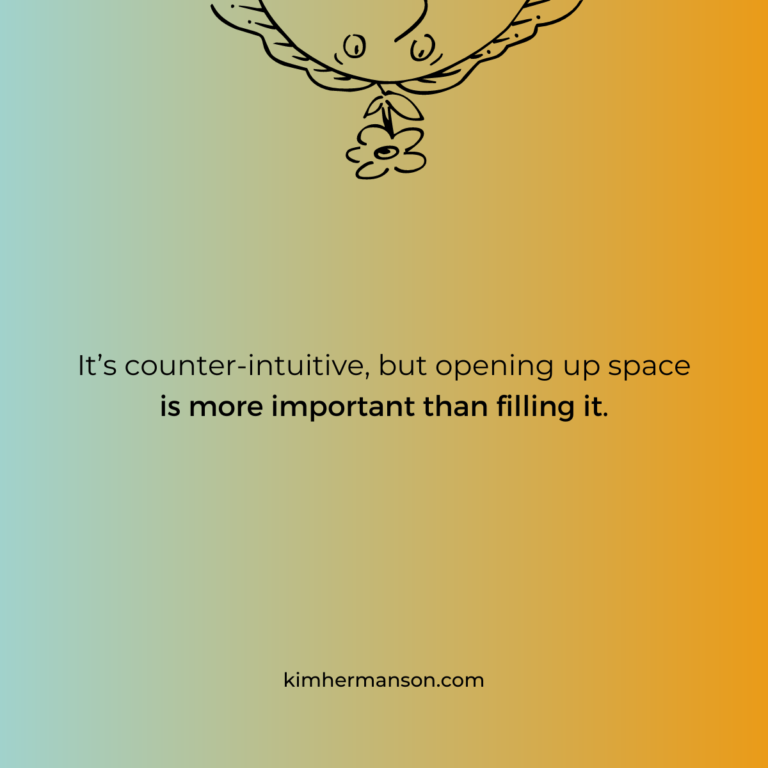The magic of Third Space: Teaching and facilitating with heart and presence

Have you ever experienced a moment in a group where everything just clicks? There’s a deep connection, surprising insights emerge, and the energy feels almost magical. That’s what I call “third space,” also known as the imaginal realm—a place of expanded knowing and intuitive wisdom that arises when people come together with a shared purpose. It’s bigger than any one person and can transform a group experience into something truly profound.
Recently, someone asked me how to create third space when teaching or facilitating. My answer? It’s not about using specific techniques. Instead, it’s about stepping back, holding space, and allowing the magic to unfold naturally. Here’s how you can start inviting third space into your group settings.
1. Start with Your Own Inspiration
Before you can inspire others, you need to feel inspired yourself. Teaching and facilitating are creative acts, and creativity thrives when you’re in a space that opens your heart. Take time to connect with places or activities that fill you with expansiveness—whether that’s hiking along a coastal trail, meditating on a mountain, or simply watching a sunrise. Carry that feeling of openness into your teaching, and it will resonate with your group.
2. Listen More Than You Speak
The magic of third space happens when you’re more interested in what your group has to share than in delivering your own ideas. Even in content-heavy settings, like teaching technical skills, your group’s questions and perspectives are essential. Instead of focusing on being the “expert,” let the group process guide the journey. As the English philosopher Douglas Harding put it, teaching is about being “headless”—dropping your ego and letting the experience lead.
3. Ensure Equal Space for All Voices
Groups thrive when everyone feels heard. Shy participants often offer the most surprising insights, but they need a structure that invites them to share. Build in time for everyone to contribute equally, and watch how the group dynamic shifts. Jo Freeman’s 1970s article “The Tyranny of Structurelessness” highlights how, in the absence of structure, dominant voices tend to take over. A balanced structure creates a space where quieter voices can flourish, often revealing the hidden wisdom the group has been waiting for.
For example, Cesar Chavez once held a community meeting to brainstorm solutions for reaching farm workers who had been barred from labor camps. The breakthrough came from an older woman who timidly shared her idea at the very end of the meeting—a moment that changed everything.
4. Honor the Process, Not Just the Agenda
While it’s important to have an agenda, your primary role as a facilitator is to create and hold space, not to fill it. The agenda should serve as a guide, not a rigid framework. As Eckhart Tolle wrote in Stillness Speaks, “Most people confuse the Now with what happens in the Now…The Now is deeper than what happens in it.” Third space emerges when you hold the “Now” open for possibilities.
Teaching as a Sacred Role
Teaching and facilitating are paradoxical. We’re often trained to lead, but the deepest learning happens when we step back and act as guests in the group experience. John Heider said it beautifully in The Tao of Leadership: “Their leadership did not rest on technique or theatrics, but on silence and on their ability to pay attention…They were courteous and quiet, like guests.”
Join Me in Exploring Third Space
If this resonates with you, I’m offering a workshop at Esalen Institute to dive deeper into third space and the imaginal realm. Together, we’ll explore how to create this space using art, imagery, creative processes, and intuition. Whether you’re a teacher, facilitator, or simply curious, this workshop will offer a chance to experience the magic of third space firsthand.
To register, call Esalen at (831) 667-3005 or visit their website here.





